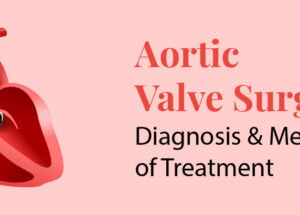What are Hormonal Imbalance In Women?
October 3, 2022

Overview
Hormones greatly influence your general health. Therefore, many symptoms could indicate a hormone imbalance as a result. In addition, many conditions can be addressed to correct hormonal imbalances.
Glands create chemicals called hormones in the endocrine system. Hormones transmit with tissues and organs through the bloodstream, giving them instructions on what to do and when.
A hormonal imbalance can impact numerous body functions because hormones are crucial for controlling the majority of critical bodily processes. Hormones assist in regulating:
- Metabolism
- Blood sugar increase
- Sexual activity
- Menstrual cycles
- General development and growth
- Mood and amount of stress
- Both men and women can be impacted by insulin, steroid, growth hormone, and adrenaline imbalances.
While males are more prone to encounter testosterone levels, females may also experience imbalances in oestrogen and progesterone levels.
Symptoms
The symptoms of a hormonal imbalance can change depending on whether the damaged gland is damaged and whether the person is a female or a male.
Symptoms in Women
The following symptoms appear more commonly in women:
- Mood changes
- Diarrhoea or constipation
- The irregular cycle of the menses
- Back or stomach pain during menstruating and infertility
- Minimal sex drive
- Insomnia
- Unjustified weight gain or loss
- Broken bones
- Excessive hair growth, or hirsutism
Symptoms in males
Males with low testosterone levels frequently experience the following symptoms:
- Erectile dysfunction is caused by a decline in sex (ED)
- loss of muscle tone, thinning hair, and slowing hair growth are all symptoms of chest pain.
Symptoms or signs in children
During puberty, children begin to produce sex hormones. Many kids who undergo delayed puberty will eventually go through conventional puberty, but some may develop hypogonadism.
People with hypogonadism may encounter the following:
lack of bulk growth in the muscles
a voice that lacks depth, scant body hair development, poor penis and testicular growth,
increased arm and leg length in comparison to the body’s trunk, gynecomastia, delayed menstruation, undeveloped breast tissue, and a constant growth rate
Acne and menstruation
Sebaceous glands in the skin can overproduce oil, which can result in acne. In addition, this extra oil has the potential to block pores and draw microorganisms that worsen skin inflammation.
The hormones progesterone, oestrogen, and testosterone affect the sebaceous glands in a person’s skin. These are a few ways that these hormones may affect acne:
Sebum (oil) production is regulated by testosterone. If it is too much, it could clog pores and cause acne.
Increasing progesterone levels probably contribute to pregnancy-related acne, though it is unclear how.
Post-menopausal acne in women can occur, and variations in oestrogen and progesterone levels may be to blame.
One of the most frequent causes of acne is the menstrual cycle. For many people, acne appears the week before their period and then goes away.
Dermatologists advise hormone testing for patients with acne and additional symptoms, including irregular periods and excessive body or facial hair.
Androgens and acne
Acne is a result of androgens overstimulating the oil glands.
Acne is prevalent throughout puberty in children of both sexes because of elevated androgen levels. However, early in one’s 20s, androgen levels normally start to decline.
Weight gain and hormonal imbalance
Hormones are fundamental to metabolism and your body’s capacity for energy utilisation. Therefore, hormonal disorders like Cushing syndrome can bring on obesity and overweight.
Cortisol levels in the blood are elevated in people with Cushing syndrome. As a result, appetite rises, and fat is stored.
If the disease is severe, hypothyroidism can also result in weight gain.
During menopause, there may be slight hormonal abnormalities. Many people put on weight during this phase because their metabolisms slow down. You might discover that despite eating and exercising, as usual, you continue to gain weight.
The underlying problem must be treated to reverse weight gain caused by a hormone disorder.
Unbalanced hormones and hair loss
Most hair loss is inherited and unrelated to hormonal changes, including male pattern baldness. However, hormonal alterations and imbalances can occasionally result in transient hair loss.
This is frequently associated with the following:
- Pregnancy, delivery, and the beginning of menopause.
- Hair loss can also result from the overproduction or underproduction of thyroid hormones.
Causes of an imbalance in hormones
There are numerous potential causes of hormone imbalance. Depending on which hormones or glands are impacted, they may vary.
Hormonal imbalance is frequently brought on by
- Whether benign or malignant, hormone therapy medications treat cancers, including chemotherapy.
- Eating disorder
- Trauma or stress injury
- Although some of the following conditions may initially be brought on by hormonal imbalances, having these conditions can also result in additional hormonal abnormalities:
- Type 1 and type 2 diabetes insipidus hyperthyroidism, hypothyroidism, or an underactive or overactive thyroid, as well as thyroid nodules, thyroiditis, and hypogonadism
- Low amounts of cortisol and aldosterone result from Cushing syndrome, also known as high levels of cortisol congenital adrenal hyperplasia.
- Addison’s illness
Tests and Diagnosis
There isn’t a single test that can be used to assist doctors in identifying a hormonal imbalance. Make an appointment with your doctor for a physical examination to get started.
Be prepared to outline your symptoms as well as the time frame in which they have developed. Bring a list of all the prescription drugs, vitamins, and dietary supplements you are taking right now.
Your physician might inquire about things like
- How frequently do you feel the symptoms?
- Does anything help you feel better?
- Have you lately gained or lost weight?
- Do you feel more anxious than usual?
- You last had a period when?
- Do you intend to become pregnant?
- Do you struggle to achieve or keep an erection?
- During intercourse, do you experience vaginal dryness or pain?
Blood test
Your doctor will send a sample of your blood to a lab for analysis. The majority of hormones can be found in the blood.
A doctor can order a blood test to examine your thyroid and the quantities of oestrogen, testosterone, and cortisol in your body.
Pelvic exam
Your doctor may do a Pap smear on your uterus to check for any suspicious lumps, cysts, or tumours.
Your doctor might examine your scrotum for tumours or other anomalies if you have testicles.
Ultrasound
A piece of ultrasound equipment uses sound waves to see into your body. For example, doctors may ask for an ultrasound to obtain photos of the uterus, ovaries, testicles, thyroid, or pituitary gland.
Natural remedies- changes in lifestyle
The following lifestyle modifications could help lessen the likelihood and signs of hormone imbalances:
- Keeping a healthy body weight
- Eating a healthy, balanced diet, frequently exercising, and maintaining good personal hygiene by washing the face, neck, back, and chest with OTC acne washes, rinses, and prescription acne treatments or gels for mild to moderate acne.
- Avoiding hot weather, spicy, rich, or hot foods and beverages, and other hot flash triggers
- Reducing and controlling stress
- Practising yoga, meditation
- Minimising intake of sugary and refined carbs
- Eschewing boxed food
- Using glass containers to store and heat food and drink in place of old non-stick frying pans
People also ask
1. What are the signs of hormonal imbalance?
- Either a quick or slow heartbeat
- unjustified weight gain or decrease.
- Fatigue.
- Constipation.
- More frequent bowel motions or diarrhoea.
- Your hands are tingling and numb.
- Elevated levels of blood cholesterol.
- Either anxiety or depression.
2. What happens if a woman has a hormonal imbalance?
Irregular menstruation (periods): The menstrual cycle is regulated by a number of hormones. As a result, irregular periods may result from an imbalance in one or more hormones.
3. How do you fix your hormonal imbalance?
- Keeping a healthy weight.
- Eating a wholesome, balanced diet.
- Doing regular exercise.
- Taking control of your stress.
- Getting enough good sleep.
4. What foods affect female hormones?
- Red meat
- Soy products
- Dairy products
- Caffeine
- Processed foods








